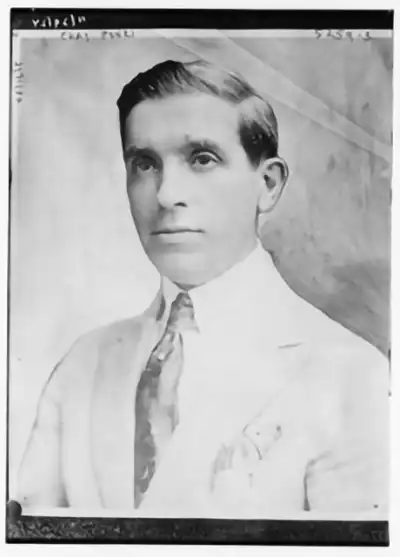
We’ve all stumbled into bad deals at some point — but maybe not as painfully as Ronald.
In 2017, a retired Texan named Ronald took some very questionable advice. It seemed like a good idea at the time. Ronald invested with a certain Charles Carrier, who owned (what appeared to be) a hugely successful franchise in the HomeVestors of America group.
Ever seen a “We Buy Ugly Houses” pitch? That’s the same home-flipping group.
Taking Ronald for a Ride
Only a year earlier, in 2016, the Texas Real Estate Commission penalized Carrier for the unlicensed managing of real estate. It didn’t portend well for Carrier’s much-hyped home-flipping business. Today, Charles Carrier is alleged to have operated a years-long Ponzi scheme, extracting tens of millions of dollars from people, like Ronald, who are now left holding the bag.
Ronald’s story began when he advanced $115K in advance purchase funds. In return for the investment, Ronald was promised a gain of 9% annually. He’d receive it in monthly payments. Carrier’s business would use the investment to buy houses. Ronald would own a stake in the real estate.
The promised 9% flowed in. So far, so good. On a roll, Ronald got his elderly dad to invest.
But late last year, by which time the two had sunk about $700K into the scheme, the monthly payments stopped. Soon after learning their investments were wiped out, Ronald’s father died.
Where had all their money gone? Carrier would later admit it went to his own operating expenses, rather than flipping homes.
Charles Carrier: Model Franchisee?
Twenty years ago, Charles Carrier opened a franchise of HomeVestors in Dallas. He was well educated, serious, and persuasive. His business became the “most successful HomeVestors franchise in the United States” as his website proclaimed. Carrier paid commissions to another Texan for setting up steak dinners where new prospects would be introduced to Carrier’s business.
Most of Carrier’s investors never looked over his shoulder. Unbeknownst to them, they were acquiring no liens at all. Collateral for the funds they advanced simply did not exist. And that is why some lost millions.
If you’re investing in real estate through someone else, it’s wise to have a third-party title expert run a search on the title, then record the deed in the county.
In early 2024, Carrier began borrowing against expected proceeds. To do it, he took out loans with jaw-dropping fees and interest rates. Within a few months, Carrier was well over a million dollars in debt. That’s on top of the $75K+ he needed to send to his investors each week, according to court documents.
But there was still more. Carrier also needed to pay HomeVestors’ regular franchise fees and marketing costs.
Carrier borrowed profusely against houses, according to court filings. Some of these homes he owned. Others, he didn’t. Carrier was proficient enough at drafting deeds. But some of them never got recorded.
Investors Floored by Lack of Oversight
HomeVestors is supposed to hold its franchises to best practices. This means franchise operators must:
- Submit periodic reports on their sales.
- Detail their debts and assets.
- Permit HomeVestors’ auditors to check their books and prepare financial updates upon the franchisor’s request.
These safeguards are in place to prevent fraud. They should have been respected. So, what happened?
Far too little happened until far too late. HomeVestors was enriched by Carrier’s business until late 2024, when it finally revoked Carrier’s franchise agreement. But the damage was already done.
Last October, investors came looking for their missing payments.
In May, HomeVestors sued Charles Carrier. Theirs is now just one of many lawsuits against HomeVestors’ former model franchisee. Seven financial companies are fighting Carrier over his failure to repay on cash-advance agreements. Carrier has countersued several of these lenders over their unreasonable rates.
Every investor who lost money on Carrier’s scheme is pitted against the rest. Any will be fortunate to claw back even a small fraction of their funds. And speaking of ugly, the rich ones are foreclosing on the homes, taking assets off the table and placing them out of smaller investors’ reach. Their retirement plans now ruined, ordinary investors are forced to wait and see what the FBI and the Justice Department can do to help them. There are too many investors fighting over too little equity for lawyers to want to take on their cases.
Zero, Zip, Zilch

In an Ohio case against a similarly manipulative scheme, justice is long in coming. Mark Dente, the (now former) basketball coach at Copley High School, is accused of running a years-long Ponzi scheme through his businesses. Dente allegedly extracted more than 200 million dollars from hundreds of duped investors.
Now, Dente is being investigated by the FBI and Ohio. Nearly a year has passed since the FBI announced the investigation.
Still, zero arrests have been made.
How Did the Ohio Scheme Work?
Dente was supposed to buy and flip homes with the investors’ cash. Investors were, at least at first, getting something between 8% and 30% in profits. But the payments stopped in late 2021.
In the classic Ponzi style, this case is about taking money from new investors to send returns to earlier investors. This Ohio house of cards fell apart more than three years back.
Dente and his associates allegedly lived large on the money they raked in. Meanwhile, some investors lost their retirement savings. Others had mortgaged their homes to invest. Some had to deal with the pain of having recruited friends and family into the scheme.
Today, scores of bag holders are forced to cope with their losses while Dente insists he did nothing wrong.
What’s the Story With Law Enforcement?
The FBI is still collecting details from Dente’s investors. Meanwhile, courtroom action has stalled. Here is the rundown of this exasperating saga:
- Three years ago, the judge appointed a Cleveland-based receiver to handle the legal actions against the Dente businesses. Nearly 100 lawsuits are pending in the Summit County Court of Common Pleas.
- The receiver is busy with legal actions against more than 220+ investors who actually made money from working with Dente. The goal is to try to recover the bag holders’ lost money.
- The Ohio Department of Commerce has deployed securities fraud agents to investigate the mess.
At the time of this post, the court-appointed receiver reportedly doesn’t know when Dente will be charged with crimes.
Supporting References
Anjeanette Damon and Mollie Simon, with Byard Duncan for WFAA-TV (Dallas, Texas): “Incalculable” Damage: How a “We Buy Ugly Houses” Franchise Left a Trail of Financial Wreckage Across Texas (May 15, 2025; first published by ProPublica).
Stephanie Warsmith for the Akron Beacon Journal: Will Mark Dente Face Charges for his Alleged Ponzi Scheme? (Feb. 13, 2025).
And as linked.
More on topics: Influencers and Ponzi schemes, Is real estate investment worthwhile?
Image credits: Scam sign from the public domain via OpenClipArt. Public domain photo of Charles Ponzi from the George Grantham Bain Collection (Library of Congress), via Picryl.
